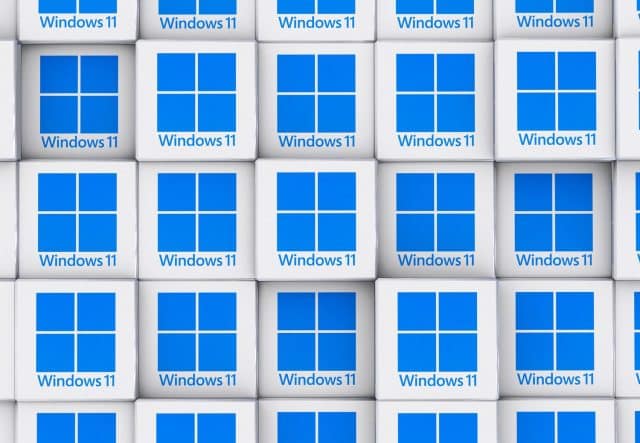Microsoft fixes broken zip files and fubared Start menu searches with the KB5034204 update for Windows 11

Microsoft has released the KB5034204 update preview for Windows 11 which addresses a series of problems in the operating system. Among the issues that are treated is one that causes some 7-Zip archives to appear empty.
There is also the promise that the update makes video calls more reliable and that some Bluetooth issues have been fixed. Anyone who has been plagued with an unclosable tool tip in the File Explorer Gallery will be pleased to learn that this has been addressed.
See also:
- Microsoft's next big release will be Windows 11 24H2; Windows 12 may not launch until 2025
- Windows 10 users with KB5034441 update failure need to manually resize partitions to fix the problem
- Microsoft rushes to calm fears about Copilot running automatically in Windows 11
The update is available for Windows 11 version 22H2 and 23H2. Users of both editions of the operating system are treated to the same changes, but there is an additional change for users of the most recent build:
Microsoft has been working to ensure compliance with the Digital Markets Act (DMA) in the European Economic Area (EEA). To learn more, see Previewing changes in Windows to comply with the Digital Markets Act in the European Economic Area. These changes will gradually roll out to Windows 11, version 23H2 PCs in the EEA to be compliant by March 6, 2024.
Microsoft shares the following list of changes and fixes:
- This update addresses an issue that affects certain types of 7-Zip files. They appear as empty in File Explorer.
- This update addresses an issue that affects Wi-Fi Protected Access 3 (WPA3) in the Group Policy editor. HTML preview rendering fails.
- This update addresses an issue that affects Windows Management Instrumentation (WMI). A caching issue occurs. The issue causes CurrentTimeZone to change to the wrong value.
- This update makes Windows more reliable during power transitions. This reduces the risk of a stop error.
- This update addresses an issue that affects the OpenType font driver. On a certain architecture, the issue might affect how text renders for third-party applications.
- The update addresses a known issue that affects the color font format for COLRv1. It now renders properly. Windows uses this format to display emoji with a 3D-like appearance.
- This update addresses an issue that stops WMI from working. This occurs in certain scenarios with mobile device management (MDM) providers, such as Microsoft Intune.
- This update addresses a known issue that affects BitLocker data-only encryption. A mobile device management (MDM) service, such as Microsoft Intune, might not get the right data. This occurs when you use the FixedDrivesEncryptionType or SystemDrivesEncryptionType policy settings in the BitLocker configuration service provider (CSP) node.
- This update addresses an issue that affects Access Point Name (APN) profiles. It stops you from automatically configuring APN profiles for cellular enabled devices. This occurs when you run the “netsh mbn show readyinfo *” command.
- This update addresses an issue that affects Trusted Platform Modules (TPM). On certain devices, they did not initialize correctly. Because of this, TPM-based scenarios stopped working.
- This update includes quarterly changes to the Windows Kernel Vulnerable Driver Blocklist file, DriverSiPolicy.p7b. It adds to the list of drivers that are at risk for Bring Your Own Vulnerable Driver (BYOVD) attacks.
- This update affects Unified Extensible Firmware Interface (UEFI) Secure Boot systems. It adds a renewed signing certificate to the Secure Boot DB variable. You can now opt for this change.
- This update addresses an issue that affects RemoteApp windows. In certain cases, they persist on client devices after you close them.
- This update addresses an issue that affects a remote desktop client. It might connect to a wrong instance of a user's session. This occurs if a user has multiple sessions on the host.
- This update addresses an issue that occurs when you change the keyboard language. The change fails to apply to RemoteApps in some scenarios.
- This update addresses an issue that affects Windows Local Administrator Password Solution (LAPS) Post Authentication Actions (PAA). The actions occur at restart instead of at the end of the grace period.
- This update addresses an issue that affects Active Directory. Bind requests to IPv6 addresses fail. This occurs when the requestor is not joined to a domain.
- This update addresses an issue that affects the LocalUsersAndGroups CSP. It stops processing group memberships if it cannot find a group.
- This update addresses an issue that affects Group Policy Folder Redirection in a multi-forest deployment. The issue stops you from choosing a group account from the target domain. Because of this, you cannot apply advanced folder redirection settings to that domain. This issue occurs when the target domain has a one-way trust with the domain of the admin user. This issue affects all Enhanced Security Admin Environment (ESAE), Hardened Forests (HF) or Privileged Access Management (PAM) deployments.
- This update changes a setting in Active Directory Users & Computers. By default, the snap-in now uses a strong certificate mapping of X509IssuerSerialNumber. It does not use the weak mapping of x509IssuerSubject.
- This update addresses an issue that affects the display of a smart card icon. The icon does not appear when you sign in. This occurs when there are multiple certificates on the smart card.
- This update addresses an issue that causes your device to shut down after 60 seconds. This occurs when you use a smart card to authenticate on a remote system.
More details about the update are available here, and it can be downloaded from the Microsoft Update Catalog or by checking for optional updates.
Image credit: bilalulker / depositphotos
